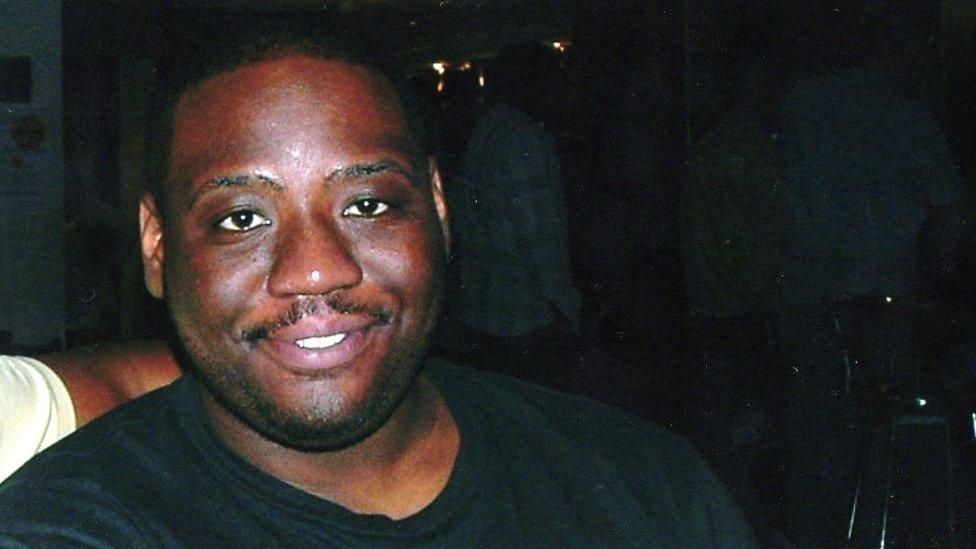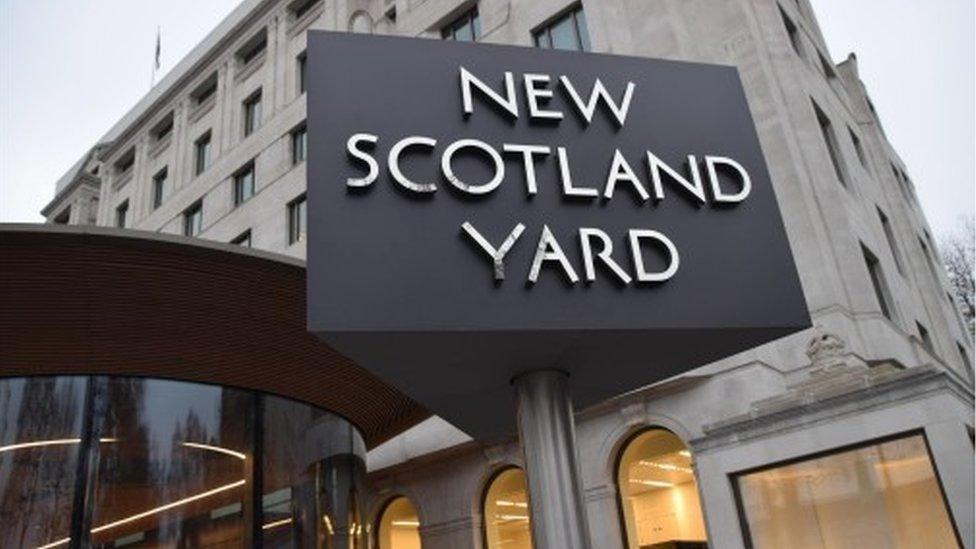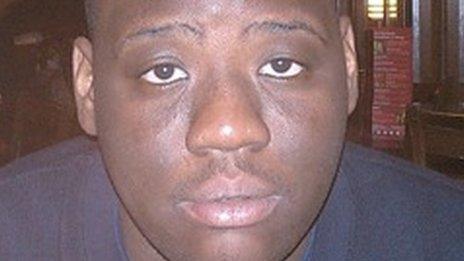Olaseni Lewis: Officers' restraint death misconduct case dismissed
- Published

Olaseni Lewis died after his brain was starved of oxygen
Six police officers have been cleared of gross misconduct over the death of a mental health patient who collapsed after being restrained in hospital.
Olaseni Lewis, 23, died in 2010 soon after he was restrained by officers in Bethlem Royal Hospital, Beckenham.
An inquest jury previously found multiple failings by the officers had contributed to his death.
But, a misconduct hearing concluded those claims were "unproven" and any failings were "performance matters".
Following the ruling, Mr Lewis's family said that without acknowledging the way he died as "unacceptable", the disciplinary process risked being "meaningless".
IT graduate Mr Lewis - also known as Seni - collapsed after being restrained for two prolonged periods of 10 and 20 minutes that left him unconscious.

The six Met officers were all attached to Bromley Borough
He did not regain consciousness and died a few days later, his brain having been starved of oxygen.
In May, an inquest jury returned a narrative conclusion, stating the officer's "unnecessary and unreasonable" use of force had "on the balance of probability, contributed to the cause of death."
It also found officers had failed to follow training or take into account Mr Lewis's medical condition.
However their tribunal hearing, led by a senior officer from Kent Police, was told the officers had acted reasonably and in accordance with their training during a "dynamic and constantly changing" situation.
'Important issues'
In a statement read by their lawyer, Mr Lewis's family said the disciplinary process would be "meaningless" unless the Met "recognise... what happened to Seni was simply unacceptable."
They called for Met Commissioner Cressida Dick "to meet with us so we may help her... understand the lessons that need to be learnt so that other families need not go through what we have had to endure."
Met Deputy Assistant Commissioner Richard Martin said he had "no doubt" the officers involved had "set out that day to their very best".
He said "a number of important issues" had been raised by the inquest, adding the way the Met "respond to someone in mental health crisis in a medical institute has fundamentally changed."
- Published9 May 2017

- Published4 September 2013

- Published19 July 2013

- Published24 September 2012

- Published23 August 2012
